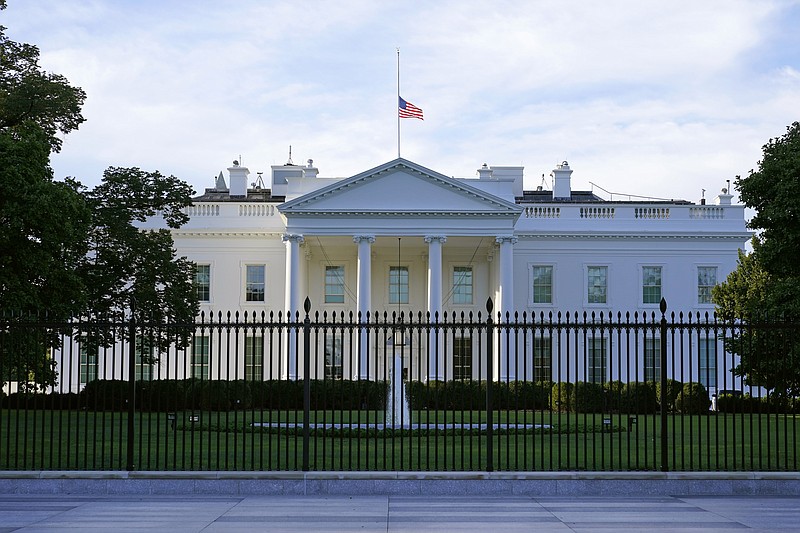You could almost feel sorry for Democrats following the Friday death of Supreme Court Justice Ruth Bader Ginsburg, an icon of the left and a trailblazing jurist.
For each argument they put forth that a replacement justice not be named until a new president is inaugurated, the previous words of another of their fellow travelers - sometimes even the same person - could be cited saying a president has every right to nominate a replacement. And for every precedent they offer that such a decision should wait is another precedent that suggests a decision should not wait.
The death of Ginsburg, without doubt, has ramped up the stakes in November's presidential election.
One reason many voters gave for casting their ballots for now-President Donald Trump in 2016 was for the potential of making Supreme Court selections. He has made two to date. Democrats fear a more conservative Supreme Court might reverse Roe v. Wade, the 1973 decision in which justices cited an amendment under which they could sanction abortion, and might void any of the vestiges of the dubiously constitutional 2010 Affordable Care Act.
Until just under 30 years ago, if a president had an appointment to fill, he nominated someone to fill it, with rarely a thought to any pending election. But during the presidency of Republican George H.W. Bush, a Democratic senator named Joe Biden, who was chairman of the body's Judiciary Committee, suggested, separately, if a court opening were to occur the president should "not name a nominee until after the November election" and "should seriously consider not scheduling confirmation hearings."
An opening did not occur at that time, but one did in 2016 when Biden was serving as vice president under Barack Obama. At that time, he mocked the thought of waiting.
"To leave the seat vacant at this critical moment in American history," he said in an interview with Minnesota Public Radio, "is a little bit like saying, 'God forbid something happen to the president and the vice president, we're not going to fill the presidency for another year and a half.'"
Obama, with the full-throated support of Democrats, the same party that now vociferously demands Trump not nominate anyone, nominated Judge Merrick Garland for the open seat.
Republican Senate Majority Leader Mitch McConnell, citing the Biden "rule," said the Senate would not hold hearings on the nominee, and it did not. After Trump was elected, he nominated Neil Gorsuch for the court, and he was subsequently confirmed.
Ginsburg herself, on nominating a justice during an election year, said in 2016: "There's nothing in the Constitution that says the president stops being the president in his last year." However, on her deathbed, she reportedly told her granddaughter her "most fervent wish is that I will not be replaced until a new president is installed."
The difference between then and now is that in 2016 the president was a Democrat and the Senate controlled by Republicans. This year the president is a Republican and the Senate controlled by Republicans.
The country high court history has nomination sagas that might be seen to buttress both sides, though many more support a vote than a delay. In all, 19 nominees have won confirmation during a president's last year or so in a four-year term, including five appointed as chief justice.
Among those is the appointment by John Adams of Chief Justice John Marshall in January 1801, after the election but before the inauguration of opponent Thomas Jefferson. Marshall went on to serve 34 years on the bench, putting Adams' Federalist interpretation on cases long after the president had left office.
Throughout U.S. history, we could find no scenario that exactly matches the current one. Ginsburg is the first justice to die or resign in September of an election year, where there is time to confirm a new justice but where the party of the president and/or the Senate could change in the November election.
The party in control of the Senate has occasionally confirmed nominees of the president of the opposing party in election years, and several presidents have made nominations in December that were confirmed by a Senate of the same party on the same day or just days later.
Two justices, one a chief justice, have died in August of election years. In both instances, the Senate was of a different party than the presidents, and neither president was able to get his nominee or nominees confirmed before the inauguration of the next president.
An episode with some similarities to today was 1956, when Justice Sherman Minton resigned on Oct. 15. The president, at the end of his first term, was Republican Dwight Eisenhower, but Democrats held the Senate by one vote. Eisenhower announced the recess appointment of William Brennan on Oct. 16 but did not formally nominate him until Jan. 14, 1957, after he'd been elected to a second term.
So we are, in fact, in an unprecedented time. But the president has the right to make a nomination, should make it and ought to have his nominee voted on, whether before or after the election. His opponents would unquestionably do so in his shoes. The electorate then can make the decision whether he'll get the chance to make any more picks after this one.
